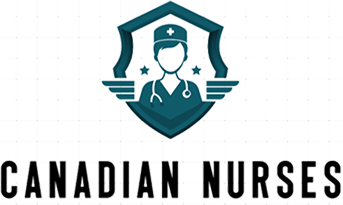Nursing notes might seem like just a bunch of scribbles on paper or digital documents, but they play a crucial role in healthcare. They’re like a secret diary that nurses keep about their patients, helping them keep track of important information and providing a roadmap for providing the best care possible.
Let’s dive into who uses nursing notes and why they’re so important.
Who Uses Nursing Notes?
Contrary to what the name implies, nursing notes aren’t just limited to nurses alone. They’re also used by several other individuals. Let’s look at each of them.
Nurses
Well, of course, nurses use nursing notes! They’re the ones who write them.
Nurses jot down all sorts of things in these notes, like vital signs (you know, stuff like heart rate, blood pressure, and temperature), any treatments given, how the patient is feeling, and any changes in their condition.
These notes help nurses stay organized and communicate with other healthcare providers.
Doctors
Doctors rely on nursing notes to get a quick update on their patients. They might not have time to talk to every nurse on the floor, so they look at the notes to see what’s been going on. It helps them make informed decisions about the patient’s care and treatment plan.
Other Healthcare Providers
Nurses aren’t the only ones taking care of patients. There are also therapists, social workers, and other healthcare professionals involved in a patient’s care.
They all need to know what’s going on with the patient, and nursing notes give them that information.
Administrative Staff
Believe it or not, even the administrative staff at hospitals and clinics use nursing notes. They use them for things like billing and coding, making sure everything is recorded properly so the patient and the hospital get billed correctly.
Legal and Insurance Purposes
Sometimes, nursing notes are needed for legal or insurance reasons. They can be used as evidence in court cases or to support insurance claims.
So, they’re super important for protecting both the patient and the healthcare provider.
Different Requirements for Nursing Notes
Now that we know who uses nursing notes, let’s talk about the different requirements for them:
Accuracy
Nursing notes need to be accurate. Like, really accurate. They’re a legal document, so any mistakes could cause big problems down the line. Nurses have to make sure they write down everything correctly and double-check their work.
Timeliness
Nursing notes need to be done in a timely manner. You can’t wait until the end of your shift to write them all down. They need to be done as things happen, so they’re fresh in your mind. Plus, other healthcare providers might need that information right away.
Clarity
Have you ever tried to read a doctor’s handwriting? It’s like trying to decipher ancient hieroglyphics. Nursing notes need to be clear and easy to read so that everyone can understand them. That means no scribbling or using medical jargon that nobody else understands.
Relevance
Nursing notes should only include relevant information. You don’t need to write down every little detail about the patient’s day. Stick to the important stuff that other healthcare providers need to know.
Confidentiality
This one’s super important. Nursing notes contain sensitive information about patients, so they need to be kept confidential.
That means no sharing them with anyone who doesn’t need to see them and making sure they’re stored securely.
Consistency
Nursing notes need to be consistent. That means using the same format and terminology every time. It makes them easier to read and understand, which is especially important if multiple nurses are taking care of the same patient.
Why Nursing Notes Matter
You might be thinking, “Why are nursing notes such a big deal?” Well, let me tell you:
Continuity of Care
Nursing notes help ensure continuity of care. If a patient sees multiple healthcare providers, nursing notes provide a consistent record of their treatment and progress.
Communication
Nursing notes are a way for nurses to communicate with each other and with other healthcare providers. They provide a snapshot of the patient’s condition and help everyone stay on the same page.
Legal Protection
Nursing notes can provide legal protection for both patients and healthcare providers. They document the care that was provided and can be used as evidence if there’s ever a dispute.
Quality Improvement
By reviewing nursing notes, healthcare providers can identify areas for improvement in patient care. Maybe there’s a pattern of certain treatments not being effective, or maybe there’s a need for additional training on a particular procedure.
Conclusion
Nursing notes are a vital part of healthcare. They’re used by nurses, doctors, and other healthcare providers to communicate important information about patients.
By following the requirements for nursing notes and understanding why they matter, nurses can ensure they’re providing the best possible care for their patients.

